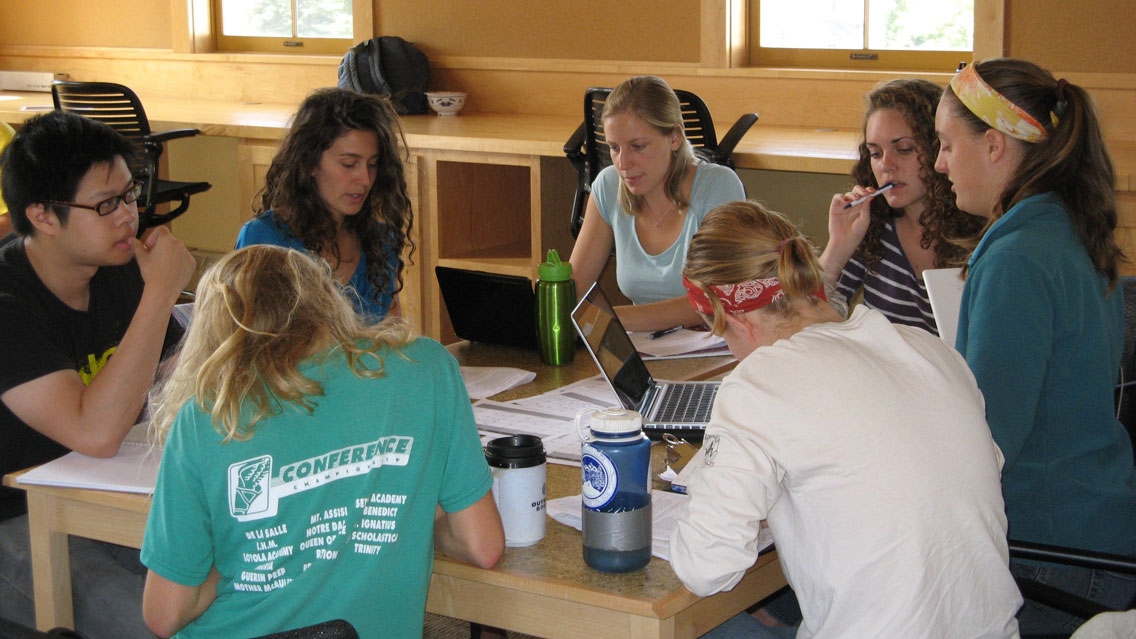Community Engaged Practicum
Through the ENVS 0401 Community Engaged Practicum, students work in small groups with one of a variety of partners and organizations to complete a semesterlong, community-engaged project.

Our senior environmental studies majors collaborate with community organizations to lend their creativity, perspectives, and research skills to addressing current environmental issues in our region and beyond.
Current Projects: Fall 2025
In collaboration with our community partners, we will again be offering two sections of the practicum. One section (ENVS0401A) is focused on “Building for the future while navigating uncertainty” specifically looking at how local community organizations can and will continue their work toward equitable, resilient, and just communities in Vermont. The second section (ENVS0401B) is focused “What’s Next” and will work with partner organizations to review the successes and failures of 20 years of movement building, globally and locally, and then ask how the movement can move forward during these tumultuous times.
Community partners for this semester are:
- Vermont Department of Public Service
- Vermont State Treasurers Office
- Vermont Natural Resources Council
- Vermont Office of Economic Opportunity
- Vermont Gas Systems (VGS)
- Vermont Futures Initiative
- Addison Housing Works
- Middlebury College
SECTION A: Building for the Future While Navigating Uncertainty
SECTION B: What’s Next?
Capstone Course Model
Middlebury College’s environmental studies capstone is designed to have students integrate and apply a range of disciplinary perspectives to a community research challenge. This interdisciplinary thinking is enhanced through the core-focus-capstone structure of our major. The consideration of diverse perspectives is further promoted by 1) practicum partnerships with “guest experts” from the community who lead field trips, present their work and research, and mentor students during the semester, and 2) faculty and staff representing varied expertise responding to students’ oral and written project progress reports.
Research challenges are developed with our community partners in advance of the semester. Students typically work in teams of five, within a 15–20 person seminar. The seminar is dedicated to project-based work, yet also includes six sessions of student-led reading discussion of the relevant literature, three field trips and/or meetings with guest experts, reflective writing assignments, and a workshop on persuasive speaking. Project management consists of a minimum of three sessions with the community partner, written work plans and progress reports, weekly oral progress reports for peer feedback, and the mid-term oral progress report for faculty and staff noted above. The seminar culminates with oral and written presentations. The themes for the seminar are determined through a combination of known community needs and the areas of interest and expertise of the faculty leading the seminar any given semester.
The Lintilhac Foundation Environmental Studies Studio
The Environmental Studies Program at Middlebury College gratefully acknowledges the gift of the Environmental Studies Studio by the Lintilhac Foundation. The studio hosts the Community Engaged Environmental Studies Practicum.
